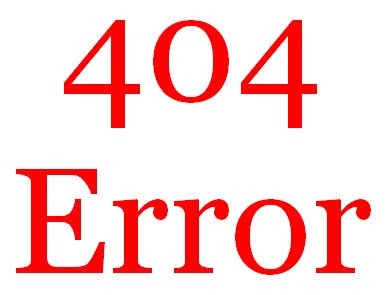
Here’s a new phrase for you: anticipatory regret.
It sounds a bit abstract, but it’s a very real problem inhibiting a fair number of people.
The (usually subconscious) reasoning goes like this: “I could make a course correction in this area. But if I do, then I’m going to regret not having done it sooner.”
You might hear someone say, “I’ve lost all this weight. I feel wonderful. But I’m full of regret that I didn’t do this sooner.” Or, “I’ve finally stopped procrastinating. I’ve come up with new and better habits. But I regret I didn’t adopt those habits sooner. All that lost time!”
Regret can be a painful emotion. So much so, in fact, that people sometimes go to great lengths to avoid experiencing it.
That’s one reason, I find, why some people stay in their problematic mental-behavioral cycles longer than they have to do so. If their unstated motivation were allowed to speak freely it would say, “I know that I can change for the better. But I’ve already lost time, and I can’t stand to face that. By improving, I’ll have to face all that regret.”
This is what I mean by “anticipatory regret.”
I see this error in thinking as an outgrowth of irrational perfectionism. Irrational perfectionism refers to the emotional state generated by the idea that, “I should not make mistakes.” For example, someone I know stopped exercising consistently and started to put on weight again. He found that when he missed a day, he felt remorse and regret, so he would just stop doing it altogether. Why? Because by stopping altogether, he no longer had to focus on the regret, or having anything to feel regret about.
It’s almost as if wishing away a problem will make it go away. Of course this isn’t so, but when people err, this is the kind of reasoning they’re subconsciously adopting.
Anticipatory regret also might fuel a rationalization to stay in or otherwise resume a bad habit. For example, “Well, I’m not exercising every day like I should. I missed a couple of days. So I might as well just quit.” Nobody will say this consciously to him- or herself, but it’s how the underlying emotions often go.
When I counsel people or otherwise help someone introspect, I’m struck by how often this theory hits a chord. The person is quite willing to acknowledge, “That’s how my mind is working on this issue.” They might not be proud of or agree with it, but it’s what’s going on in the person’s mind.
If you mistakenly label the pursuit of excellence “perfectionism,” then you’re attacking the best within yourself. But if perfectionism refers to the false belief or feeling that you must not make mistakes, all kinds of problems can result — problems which serve to intensify the original problem.
When people struggle with this issue, I encourage them to work on not looking back. Just look at what you can do now to make the course correction. Instead of trying to block out anticipated feelings of remorse by continuing in the problem that generated the remorse in the first place, try to simply focus on immediate action to begin a course reversal.
Irrational perfectionists often have a hard time with course reversal. They feel as if life should be one uninhibited, perfect streak of infallibility. Kind of like a musical performance without a single off note, or a flawless painting, or a novel beautifully edited and without a single grammatical error. While these are laudable and possible goals for a particular creation, to expect all of life to be like this is ridiculous. You had better believe that perfect performance, novel or painting did not get to be that way without lots of errors and course corrections along the way. The functioning of the mind cannot be equated with the final outcome in a particular endeavor. Process is not equivalent to final result.
The goal of excellence, while laudable, is still no justification for demanding infallibility of oneself. All humans are subject to error, and even in the context of excellence one must identify and correct errors throughout the course of one’s life.
What really matters less than the fact of making errors is the willingness and ability to correct them — and, particularly, not making the same errors over and over again.
Ironically, giving in to anticipatory regret fuels a self-defeating pattern of making the same errors over and over again. Because of an irrational fear of not wanting to experience remorse, one compounds an error on Wednesday and Thursday that could have been defeated on Tuesday. This, in turn, fuels still more regret and still more of a “need” to avoid the anticipated future regret. What a nasty cycle!
People who yearn for excellence and yet still have perfectionistic tendencies are usually the first to believe in self-responsibility and paying one’s dues. Such people are usually not hypocrites and apply this principle to themselves. In so doing, they ought to remember that avoiding painful remorse that you’ve earned is no way to live a self-responsible life. If you’ve done something wrong — i.e. against your best interests — and you recognize the power to correct it, then let yourself feel the remorse and regret as a way of paying your dues. Then, in short order, get yourself back on the right track and the remorse will justifiably go away.
Be sure to “friend” Dr. Hurd on Facebook. Search under “Michael Hurd” (Rehoboth Beach DE). Get up-to-the-minute postings, recommended articles and links, and engage in back-and-forth discussion with Dr. Hurd on topics of interest.
